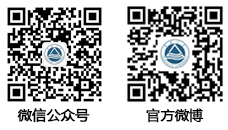A general overview of all-dielectric stuff: nonlinear effects and anapole mode excitation
讲座题目:A general overview of all-dielectric stuff: nonlinear effects and anapole mode excitation
主 讲 人:Dr. Andrey E. Miroshnichenko
讲座时间:2016年11月24日13:30分
讲座地点:钱伟长楼 201会议室
欢迎有兴趣的师生前来聆听!
理学院
2016年11月18日
讲座内容简介
The behavior of light has fascinated humankind for centuries, and controlling light underlies many powerful technologies. The intelligent use of light has generated high-performance optical devices, including optical communication systems for high-speed computing. The main focus of my research is nonlinear optics and nanophotonics, with an emphasis on the study of the resonant light-matter interaction, one of the key objectives is the development of new methods and approaches for the effective control and routing of optical signals at the subwavelength scale, facilitating the emergence of novel technologies. In this overview, I will talk about recent studies on the nonlinear process and anapole mode excitations in all-dielectric nanostructure, including dielectric single obstacle and all-dielectric meta-surface.
主讲人简介:
Dr. Andrey E. Miroshnichenko is the ARC Future Fellow in Nonlinear Physics Centre at Australian National University. He received his Ph. D. degree in theoretical Physics at Dresden University in Germany in the year 2003. He received highly prestigious Future Fellowship awarded by the Australian Research Council in 2011, and since then he leads the “Plasmonics and Nanophotonics” group at the Nonlinear Physics Centre which is engaged in the innovative and internationally competitive research. His current research interests focus on topological photonics, Fano resonance in photonics and optical nanoantennas. Up to now, he has published three book chapters and 170 research articles in Science, Review of Modern Physics, Nature Communication, Physics Review Letters, Nano Letter and so on. his publications get total citations up to 4150, and h-index reaches to 30.

